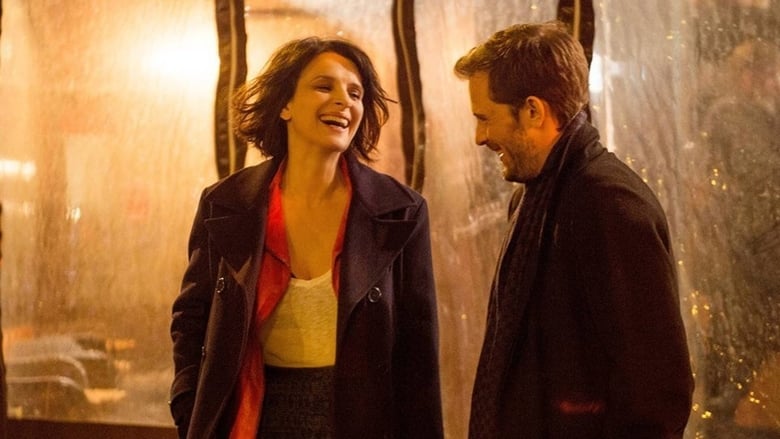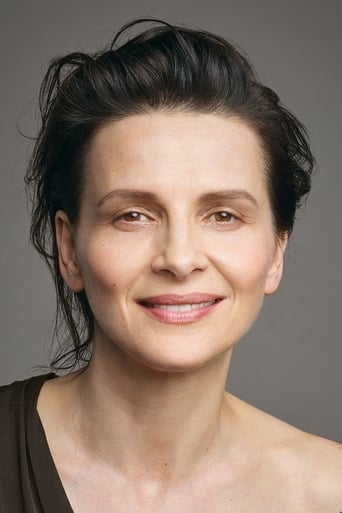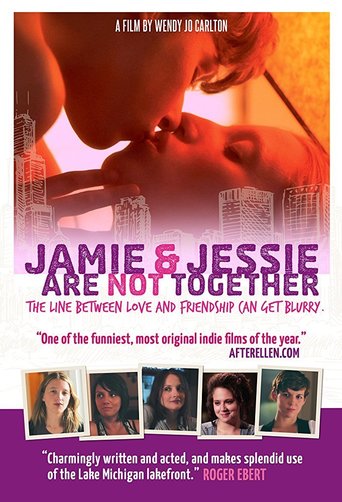Let the Sunshine In (2018)
Isabelle, Parisian artist, divorced mother, is looking for love, true love, at last.
Watch Trailer
Cast


Similar titles
Reviews
Powerful
Bad Acting and worse Bad Screenplay
Absolutely Fantastic
After playing with our expectations, this turns out to be a very different sort of film.
By now we expect a Clare Dennis movie to be a stylish, incisive anatomy of French cultural or political traditions (aka cliches). Here she deploys romance queen Juliette Binoche as a passionate beauty moving relentlessly through a series of unfulfilling affairs. Isabelle is a successful painter, specifically an abstract expressionist. In the one work we see she splashes broad black strokes across a floored white canvas, hoping her sweeping slashes will discover and express a passion she has nowhere - or no-one - else for it to go. She seeks in that formless chaos a meaning and beauty in revolt against traditional orderliness. But we see her painting only once. So she seems to be playing at the role of the romantic artist - and in an obsolete genre at that. That's in love as in her art. In her search for someone in whom to invest her ardor she chooses poorly - the selfish, insulting married banker, the equally shallow married actor, the comically silent and vulpine labourer she meets in a dance. Her conversations are a cover under which she hides, hoping to pounce on the one physical connection that will sustain and absolve her. At first Isabelle easily commands our sympathy, our identification. But the sequence of her brittle affairs steadily shifts her from model to warning. As she moves through the variously unappealing men, as we watch her emotional rollercoaster, we see her as a compulsive dependent, whose modern sexual freedom only restricts self-discovery or lasting satisfaction. She proves a selfish mother, a difficult ex-wife, and variously unsupportive or unfaithful to her lovers, all under the cover of her own needs and special sensitivity. As her every sexual conquest only deepens her isolation, Isabelle's whole society is a satire of modern French culture. The genial but foppish neighborhood suitor who invites her to the country only provokes her explosion at bourgeois complacency, especially as it romanticizes their Nature. But from her attack on that cliche she only moves on to act one out herself-picking up the labourer at the bar. Isabelle's romances here form a critique of French romantic indulgence, especially in its cinema, which has long cornered the world market on free love. Hence the climactic appearance of French icon Gerard Depardieu at the end. In his first scene he appears - at first unidentifiable - with an unfamiliar woman on a date. He dismisses her. That is, he replays Isabelle's hunger for a romantic connection, futilely searching for completion in yet another stranger. In the next scene he's revealed as Isabelle's ostensible therapist - but he's a psychic! As he spews his intuitions about her various men she brightens in hope. But he's only picking up on her responses to deliver what she wants to hear. Long the bad boy of French romantic cinema, here the bloated charlatan spews pop psych cliches that only re-enforce her deluded quest for romantic perfection. Hence his urge that she be - not "ouverte" but the American pop - "open" to whatever temptation arises. That's not admitting the sunshine she craves, but reinforcing her darkness. While the credits scroll down the left side of the screen, Depardieu continues the shallow "insight" she needs to continue her pathetic delusions. His running on and on confirms the satiric function of his presence. Denis provides a rather negative range of characters here. Two men stand apart, the gallery colleague and friend who patiently waits her to return his love and the black man wise enough to insist on taking time to see whether a relationship will naturally develop between them. For a full, healthy relationship we only have Isabelle's friend's report that she and her Jacques are taking the time and trouble to work patiently on a demanding and therefore rewarding connection over time. Without the artist's license, they've moved from nomad to gardener.
Despite the overwhelming positive critical response, there were a few critics who took French director Claire Denis to task for Let the Sunshine In, in French "Un beau soleil interior," best translated into English as "a beautiful sun inside." Written with co-writer Christine Angot, "Sunshine" stars the iconic Juliette Binoche as Isabelle, a divorced abstract painter who can best be described as "love-starved." A few female critics were angry that Denis depicts Isabelle as a woman who defines herself solely through her relationships with men. That wouldn't be so bad if the men depicted were an interesting lot-unfortunately they are not. What's more, Isabelle's back story is gravely lacking-we find out little about her professional life as a painter as well as the nature of her relationship with a 10 year old daughter (whom we meet only very briefly mid-narrative). Perhaps the most worthless review of Let the Sunshine In is the highest rated on Metacritic (a 100)-by Justin Chang writing in the LA Times who terms "Let the Sunshine In" a "sublime comedy of sexual indecision." He's right about Isabelle's sexual indecisiveness-but where is the comedy? Clearly Denis treats her beleaguered protagonist with kid gloves-she's really the woman with the "beautiful sun inside." She might be a "glutton for punishment," but in the end it's really the men who are at fault here (and a sad bunch they are indeed!). Perhaps potentially the most interesting man that Isabelle tries to hook up with is an oily banker whom we meet first (in the opening scene they're having a rather unsatisfactory sexual encounter). The banker's crime is that he wants an intimate relationship but will not give up his relationship with a wife to whom he's been married for many years. Denis unfortunately is loathe to build any suspense in her inert plot, so our frustrated banker makes a lame attempt at the art of stalking by plying Isabelle with a bouquet of flowers. He's unceremoniously given the boot by our lovesick protagonist and that's the last we hear of him. The rest of the Isabelle's potential suitors need little more description. They include an actor, Isabelle's ex-husband, a working class schlub and an art curator. Unlike the arrogant banker, their shortcomings amount to a coterie of dating misdemeanors: they're basically all a bland bunch and simply unable to commit. Finally Isabelle decides to go to a "professional" for advice after so many failed attempts at love. He turns out to be as bad as Isabelle's aforementioned love objects. It's Gerard Depardieu as a "medium," whose generalized "psychic" predictions prove as lame as their source-another abject mediocrity who believes in his own BS. Like the entire prior narrative, the medium goes on and on as the credits roll. Is Claire also mocking Isabelle for her gullibility? If she is, it's gentle mockery as it's already been established that the men here are the "butt" of the over-extended joke. Perhaps Denis can be forgiven for her feminist bias and her gentle ribbing of the male sex-but her main shortcoming here is an aesthetic one. Despite a good deal of smart, sophisticated dialogue and Juliette Binoche's performance (infused with verisimilitude), it's Denis' inability to build suspense and present a protagonist with an internal arc that displays a modicum of change.
If you remember the recording by Jonny Ray, from the fifties and cited above, I need say no more but chances are you won't so I will. Off the top of my head I can think of only one reasonably entertaining movie by Clare Denis and that was Vendredi Soir (Friday Night) in which, during a transport strike, motorists are urged via radio to offer lifts to pedestrians; Valerie Lemercier accordingly picks up Vincent Lindon and the two complete strangers wind up in the sack. Sixteen years Denis is at it again albeit Juliette Binoche doesn't stop with one man but is on a mission. Binoche was, of course, the selling point and she doesn't let us down, turning in a virtuoso performance. For reasons best known to Ms. Denis, Gerard Depardieu, now resembling a small house, is wheeled out in the last frame contributing only ennui.One for the pseud set.
I must confess I didn't make it through the movie and this is something that rarely happens to me. It was so meaningless and boring that I felt like it was kicking the will to live out of me. The main character completely lacks a sense of self respect. I wondered why the movie is promoted as a woman's search for love when all she's doing (at least during the first half of the movie) is having sex with married men, some of whom she doesn't even like. She doesn't really communicate with anyone and there is no real exchange with any of the people in her life. The characters talk but they really say nothing to each other, they just think incoherent thoughts out loud. I felt so drained I just had to stop watching, I wasn't even curious to see what happens in the end.


















